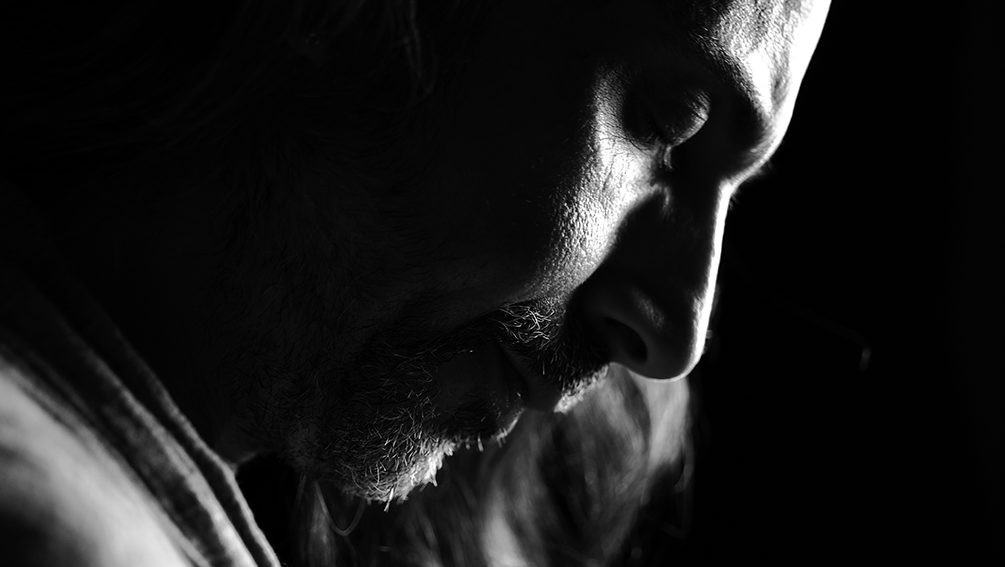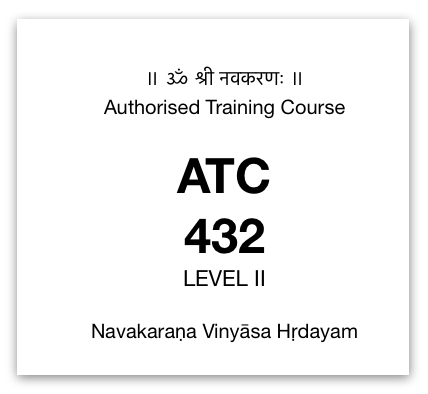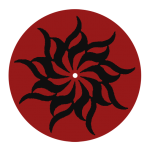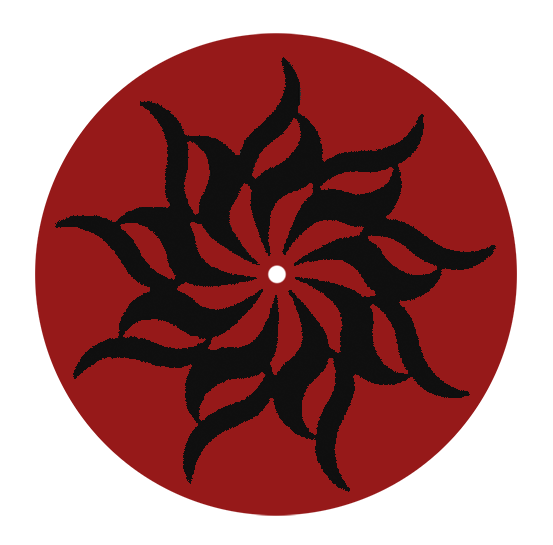Navakaraṇa Vinyāsa Hṛdayam
Weekend Teacher Training Programme
with Dario Calvaruso
Course Description
You may also be interested in:
Weekend Teacher Training
A full-immersion programme spread throughout the weekends

This training is spread out over long weekends (Friday, Saturday and Sunday). The course takes place in major cities across Asia such as Tokyo, Shanghai and Hong Kong. For further details please do no hesitate to contact us.
You may also consider other option such as: Master Teacher Training (Barcelona, Spain) or Monastic Teacher Training (Xiangxi, China).
Dario Calvaruso
Founder and conciever of Navakaraṇa Tantra

Photography: Michael Somoroff
Dario Calvaruso is the conceiver, founder Navakaraṇa Method. He has taught extensively in India, Nepal, China, Hong Kong, Japan, Singapore, Taiwan, Malaysia, South Korea, Mongolia, Indonesia, Middle-east and Europe and United Kingdom. Head of the Navakaraṇa Community, he has trained thousands of Navakaraṇa practitioners and teachers internationally.
Heterogeneous artist since a young age, Dario left Italy and his family when he was 21 on a journey of self-discovery and study of Yoga and Āyurveda to India, which lasted over 15 years. His first destination was Kāśi – The City Of Light (Benares, India). During this time, he began the study of Āyurveda with his teacher Paṇḍit Har Govind Miśra. On an auspicious day, while having a bath at the Ganges in Benares, Dario met Swami Jñānānanda Bharati, who took him in his āśrama at Gangotri, the source of the Holy River Ganges living with Swamijī in the Himalayas about 4,000 m altitude.
Dario learnt Yoga in the orthodox tradition (guru-śiṣya paraṃparām) a unique experience, especially for a Westerner. As advised by his master, Dario took on a journey throughout the Indian subcontinent. He lived with sufis in Pakistan and later with sadhus in monasteries (āśrama-s) of the śiva-siddhānta tradition in Tamil Nadu. During the years he spent in Tamil Nadu, Dario studied and practised Karaṇas (the Art of Movement) and Bharataṇāṭyam (Indian Classical Dance) with Nāṭyācārya Vṛnda Rāmanan (Trichy). At that time he also studied Yoga Darśana (Yoga philosophy) with Prof. Śrī Rangasvāmi Sourirājan at the Śrīrangam Veda Pāṭha-Śāla (one of the most traditional and highly recognised centre of Vedic Studies). He was initiated and guided in the study of Sanskrit language by Prof. Śrī Rangasvāmi Tirunārāyaṇan (a well-know Indian scholar). In 2007 Dario started his own yoga āśrama at Srirangam (India), a city-temple and small island in the River Kaveri. Besides running the āśrama, Dario completed a period of academic studies on Yoga, Psychology, Counselling and Philosophy. Navakaraṇa Method came about spontaneously from his attempt to systematise different śāṣtra-s (traditional arts and sciences) into one holistic and comprehensive methodology for self-discovery, healing and transformation.
Dario has lived, studied and taught all over Asia. It was in Japan where he met the Fuke Grandmaster Fujiyoshi Etsuzan from whom he inherited and brought into Navakaraṇa the traditional Sui-Zen (traditional sound-meditation). Since 2017 Dario has incorporated zen melodies (shirabe), creating sound-mediation practices. In 2022 Dario established Navakaraṇa Kyorei, a gurukulam and āśrama for self-transformation and organic living in Yakushima, one of the Ōsumi Islands at the south of Japan (a UNESCO World Heritage site and Biosphere Reserve). His project “Navakaraṇa Kyorei” has attracted international attention from movie directors and the medias.
Dario conducts Workshops, Retreats and Teacher Training Courses on Navakaraṇa, Philosophy and Holistic Lifestyle internationally.
Programme
This is a full-immersion programme. Those desire to join this course should bear in mind that during this period of training participants are requested to keep aside professional and personal life and focus completely on the training. Students are also advised to adopt healthy sleeping habit and diet, which are essential part of the training.
Morning Session 9:00 – 13:30
9:00 – 10:30 Led-class: series practice
10:30 – 13:00 Workshop: Sequencing / De-construction / Conditioning / Kriyā-śuddhi
Afternoon Session 14:30 – 19:00
14:30 – 15:30 Lecture: Methodology / Sanskrit / Exam Papers
15:30 – 17:30 Workshop: Sequencing / De-construction / Teaching skills
17:30 – 19:00 Workshop: Conditioning / Kriyā-s.
Post training follow-up
Navakaraṇa is a supporting community. At the conclusion of the training you will be supported and guided. We help graduated students find job opportunities in the most prestigious Yoga studios, carry out workshops and other events internationally. We also provide guidance for opening Navakaraṇa schools and implementation of the syllabus.
Syllabus
Each module consists of 108 hours. During each module participants learn three different series. Each series consists of three sequences.
With the support of teacher and manual you are trained:
- to learn the sequences by memory;
- have in-depth understanding of the anatomy, kinesiology of each movement and pose;
- provide clear instructions;
- spot, adjust and assist students’ movement and poses.
Participants learn three different series per each module. At the completion of the fourth modules participants have learnt how to practise and teach 12 series. For a more closed look as each series consists of three sequences at the completion of the course dedicated students should have acquired the skills for practise and teaching and in-depth knowledge of 36 sequences.
MODULE 1 第一模块 [108 hours 小时] | |||
(multilevel: primary to advanced 适用于不同水平: 初级到高级) | |||
upakrama pre-sequence 热身序列 | trikoṇa upakrama triangle pre-sequence 三角热身 | parigha upakrama gate pre-sequence 门式热身 | ekapādakapota upakrama one-leg pigeon pre-sequence 单腿鸽子热身 |
prāsthānika opening sequence 起始序列 | trikoṇa krama triangle sequence 三角序列 | parigha krama gate sequence 门式序列 | ekapādakapota krama one-leg pigeon sequence 单腿鸽子序列 |
ānuṣaṅgika opening sequence’s concomitant 起始序列的伴随 | – – | – – | – – |
prādhānika main sequence 主体序列 | uṣṭra krama camel sequence 骆驼序列 | suptaikapādahasta krama supine hand-foot sequence 躺抓大脚趾序列 | triaṅgaikapāda krama three-limbs one leg sequence 单腿三肢序列 |
ānuṣaṅgika main sequence’s concomitant 主体序列的伴随 | – – | – – | – – |
saṃprāpti closing sequence 结尾序列 | hala krama plough sequence 犁式序列 | phalaprāpti krama results sequence 收获结果序列 | ekapāda marīci sarvāṅga krama one-leg Maricī sequence 单腿马里奇肩倒立序列 |
MODULE 2 第二模块 [108 hours 小时] | |||
(multilevel: primary to advanced 适用于不同水平: 初级到高级) | |||
upakrama pre-sequence 热身序列 | pārśvottāna upakrama side-intense stretch pre-sequence 侧部强拉热身 | virabhadra upakrama blessed-hero pre-sequence 英雄热身 | laghu upakrama pre-sequence 温和热身 |
prāsthānika opening sequence 起始序列 | pārśvottāna krama side-intense stretch sequence 侧部强拉序列 | virabhadra krama blessed-hero sequence 英雄序列 | laghu krama gentle sequence 温和序列 |
ānuṣaṅgika opening sequence’s concomitant 起始序列的伴随 | – – | daṇḍa krama stick sequence 13’ 直棍序列 | laghukhaṭvikā krama small-couch sequence 21’ 小躺椅序列 |
prādhānika main sequence 主体序列 | kūrma krama tortoise sequence 龟式序列 | ekapādahasta krama one leg-hand sequence 单脚单手序列 | ekapāda marīci krama one-leg Maricī sequence 单腿马里奇序列 |
ānuṣaṅgika main sequence’s concomitant 主体序列的伴随 | – – | – – | – – |
saṃprāpti closing sequence 结尾序列 | sarvāṅga krama all-limbs sequence 全肢序列 | hala krama plough sequence 犁式序列 | ekapādamaricī setubhandha krama one-leg Maricī bridge sequence 单腿马里奇桥式序列 |
MODULE 3 第三模块 [108 hours 小时] | ||||
(multilevel: pre-intermediate to advanced 适用于不同水平: 次中级到高级) | ||||
upakrama pre-sequence 热身序列 | aśva upakrama horse pre-sequence 马式热身 | pārśvakoṇa upakrama side-angle pre-sequence 侧角热身 | trikoṇa upakrama triangle pre-sequence 三角热身 | pāvana upakrama detox pre-sequence 排毒热身 |
prāsthānika opening sequence 起始序列 | aśva krama horse sequence 马式序列 | pārśvakoṇa krama side-angle sequence 侧角序列 | trikoṇa krama triangle sequence 三角序列 | pāvana vinyāsa mala collection of detox composition 排毒组合集锦 |
ānuṣaṅgika opening sequence’s concomitant 起始序列的伴随 | – – | – – | śvāna krama dog sequence 15’ 犬式序列 | kriyāśuddhi krama active purification 积极清洁序列 |
prādhānika main sequence 主体序列 | baddhaikapāda krama fasten one-leg sequence 单腿捆绑序列 | ubhaya pādāṅguṣṭha krama big toes sequence 手抓大脚趾序列 | dhanu krama bow sequence 弓式序列 | choose the main sequence 选择主体序列 ekapāda marīci krama one-leg Maricī sequence 单腿马里奇序列 uṣṭra krama camel sequence 骆驼序列 tryaṅgaikapāda krama three-limbs one leg sequence 单腿三肢序列 |
ānuṣaṅgika main sequence’s concomitant 主体序列的伴随 | – – | – – | – – | |
saṃprāpti closing sequence 结尾序列 | padma sarvānga krama lotus all-limbs sequence 莲花全肢序列 | phalaprāpti krama results sequence 收获结果序列 | hala krama plough sequence 犁式序列 | hala krama plough sequence 犁式序列 |
MODULE 4 第四模块 [108 hours 小时] | |||
(multilevel: intermediate to advanced 适用于不同水平: 中级到高级) | |||
upakrama pre-sequence 热身序列 | virabhadra upakrama blessed-hero pre-sequence 英雄热身 | pārśvottāna upakrama side-intense stretch pre-sequence 侧部强拉热身 | vyāghra upakrama tiger pre-sequence 虎热身 |
prāsthānika opening sequence 起始序列 | virabhadra krama blessed-hero sequence 英雄序列 | pārśvottāna krama side-intense stretch sequence 侧部强拉序列 | vyāghra krama tiger sequence 虎序列 |
ānuṣaṅgika opening sequence’s concomitant 起始序列的伴随 | svastikaikapāda utkaṭa krama one-leg crossed difficult sequence 单腿交叉难度序列 | – – | – – |
prādhānika main sequence 主体序列 | padma krama lotus sequence 莲花序列 | hanumān krama Hanumān sequence 哈努曼序列 | nāva krama boat sequence 船式序列 |
ānuṣaṅgika main sequence’s concomitant 主体序列的伴随 | – – | samakona krama flat-angle sequence 平角序列 | tripadikā krama tripod sequence 三点头的体势序列 |
saṃprāpti closing sequence 结尾序列 | padma sarvānga krama lotus all-limbs sequence 莲花全肢序列 | sarvāṅga krama all-limbs sequence 全肢序列 | hala krama plough sequence 犁式序列 |
Certification
Navakaraṇa is a unique methodology which embodies multidisciplinary knowledge and skills.
Navakarana is also a Registered Association and Registered Trademark of Holitic Wellness Ltd, which owns several patents.
Navakaraṇa provides an independent yet globalised system of Certification.
From a jurisdictional perspective a Navakaraṇa Certificate is equivalent to any other type of certificate issued by other yoga alliance, federation or institution. Indeed only those who are holding Navakaraṇa Certification are authorised to teach Navakaraṇa and use Navakaraṇa trademark.
Upon successful competition of each module you will receive the ATC-108 Certificate. At the successful completion of Navakaraṇa Vinyāsa Hṛdayam you can request for a ATC-432 Certificate.


Schedule, locations and tuitions
There aree not weekend teacher training at the moment. Please check again after sometime or send enquiry. You may consider to join the upcoming immersion Master Teacher Training .
Terms and Conditions
Agreement on terms and conditions
By registering to our programme you confirm to read, understand, acknowledge and agree on the Terms & Conditions.
Add Your Heading Text Here
Frequently asked questions (FAQ)
● Can start learning Navakaraṇa Vinyāsa directly with a Teacher Training Course? No, you cannot.
From November 2021 before starting Navakaraṇa teacher training it is mandatory to complete at least the 3-day Essentials Workshop. It is important get to know with the faculty and to know about our practice and methodology before you commit to Navakaraṇa teacher training.
● I am mainly interested in improving my practice (rather than teaching). Can I also join this Teacher Training Programme? Yes, you can and it can be very helpful in improving your practice. The training will cover both practice and teaching skills. You can decide if your main focus is: a) improving your practice; b) improving your teaching skills; or c) most important harmoniously balancing the two aspects practice and teaching. Make sure that you inform the teacher about your main focus before starting the training.
● Due to some conditions, I can’t practice but I am interested in teaching and improving my teaching skills. Can I focus on hands-on adjustment and other teaching skills during the practice hours? It might be possible, but you should request a permission from the faculty providing detailed explanation.
● Can I join this training if I am pregnant or if have other health conditions? You should check with your doctor and follow his advice. If your doctor considers you fit to join the training programme, you can register. In this case you have to inform us at the time of registration.
● Can I register to a single module? Yes, you can! You can register to a single module, two modules or four modules. It depends the package availibilty which varies according locations.
● Can I start with learning Navakaraṇa Vinyāsa from Module 2 and follow up with module 1 later? Yes, you can. Indeed it is important to understand that the optimal conditions for learning Navakaraṇa Vinyāsa it to proceed in order. If you start with Module 2 you may feel behind other students who have already completed Module 1. If you can deal such feeling it is perfectly fine to do in order module 2 and then module 1. Our syllabus is vast. It takes years for learning Navakaraṇa Vinyāsa. For this reason we have structure our courses making it as flexible as possible to fit your schedule. From November 2021 in order to enter Navakaraṇa Vinyāsa Trainings you have first complete the 3-day Essentials Workshop.
● Can I register tp Module 3 and/or Module 4 without having completed Module 1 and Module 2? No, you cannot. In order to register to Module 3 and/or Module 4 you must have completed both Module 1 and Module 2. It is import you get well familiar with Navakaraṇa Vinyāsa practice and teaching before go into Module 3 and 4.
● How many modules can I do in one year? You can register maximum two modules per year.Navakaraṇa is a sophisticated practice and methodology. In order to maintain high-standard in the learning process it is important that you allow time to assimilated what you learn in the training. Further, Navakaraṇa Vinyāsa Teacher Trainings are intensive programme. It is important that you allow time for body recovery between trainings. We advise to start with Essentials Workshop and Module 1 for the first year. Proceed into Module 2 on the second year. Then according to your level and possibilities do Module 3 and 4 in the third year or do Module 3 in the third year and Module for in a forth year.
● How many teacher training courses has Navakaraṇa method and in what they consists? In the Navakaraṇa Svasthavṛtta Course you learn techniques for self-transformation through holistic lifestyle, in the Navakaraṇa Vinyāsa Bheṣaja you learn a collection of healing sequences and holistic therapies, in the Navakaraṇa Vinyāsa Hṛdayam you learn a collection of multilevel sequences. In the Navakaraṇa Śikṣā Paddhati you learn teaching skills and choreography in full details.Further there are trainings such as Prakṛṣṭa (advanced series) and Mārgaṇa (seeking one’s path) which are taught only one-to-one.
● Should I join all the courses? It is up to you how far you want to deepen your knowledge.
● Is the next module be taught in same location and language of last year? We make effortys to keep the same location but we cannot guaranty. There are so many factors, such as venue availabilities, government restrictions, etc which make impossible to predict for the next year. As a good students you have to leave your “comfort zone”. Keep in mind that you may have to travel in different locations and learn in English to catch with the trainings programme.
● I found only package of module 3 and 4 open for registration. Is it possible to register only to Module 3 this year? Generally yes, but you need to wait until the end period of package offer. Check again this webpage at end period of package offer.
● I am struggling with the fundamental transaction of Navakaraṇa Vinyāsa practice. Do you have a specific workshop for learning these essentials? Yes, you learn all the fundamental transaction and condition exercise to master these movements in “The Essentials workshop”.
● In which language are taught the courses? Master Teacher Training Courses are international programmes and are taught in English to make them accessible to students of different countries. if you are not familiar with English language you can request a translator. Please check with us before you register to the course. Enquire now. Anyway if you are willing to became a teacher you will need to learn English and get familiar with other languages too. Alumni Teacher Trainings are sometime taught in local language as are generally tor students of that specific locations.
● Can I join if I do not speak or understand English? Generally we provide live interpreter or translator for the teacher training programmes in China, Japan, South Korea, Mongolia and Taiwan. If the training is held in other courtiers from those mentioned above mentioned please check with us sending your enquiry from here. We will get back to you.
● In which language are taught the courses? Master Teacher Training Courses are international programmes and are taught in English to make them accessible to students of different countries. if you are not familiar with English language you can request a translator. Please check with us before you register to the course. Enquire now. Anyway if you are willing to became a teacher you will need to learn English and get familiar with other languages too. Alumni Teacher Trainings are sometime taught in local language as are generally tor students of that specific locations.
● I would love teaching but I feel blocked. How should I overcome this fear? Don’t force it. Let it happen naturally. With the successful conclusion of the training we certify that you have completed the course. This mean that you have been a good student during the course and that you have gather all the necessary informations, knowledge and tools to become a teacher. Graduation does not mean that you are a teacher. To become a teacher requites plenty of experience. Start teaching to you family members and friends. From there if you put efforts, dedication, time and consistency one day you will find yourself in a small studio, then doing workshops in the leading studios across the world and then into international conferences or media. It takes some time. Enjoy the journey of sharing with others all way through!
● Will I be able to teach and/or practise Navakaraṇa series after completing the programme?
The objective of the teacher training is to pass to you all the necessary information to master the practice and teaching of all the series you have learned during the courses. If you are committed, you should be able to practise and teach all the Navakaraṇa Series in full form or personalised way. However, it really depends on your efforts, receptiveness and commitment.
How many type of classes I can teach after completing Navakaraṇa Vinyāsa Hṛdayam teacher training programme? If you complete all the four modules of the Navakaraṇa Vinyāsa Hṛdayam you wil be able to teach 36 sequences in a variety of formats. As Navakaraṇa Studio or Accademy you can offer plenty of different types of classes. The official formats of classes of Navakaraṇa Vinyāsa Hṛdayam includes: 12 Series Classes (traditional and led class) Essentials Classes (such as Prāṇa Essentials, Karaṇa Essentials, Flow Essential), Methodology Classes, Deconstruction Classes (for all the 36 series); Focus Classes (such as Inversion, Anterior Stretch, Core, Detox and Hip Opening), Chanting Classes, Conditioning Classes. If you have completed the Navakaraṇa Vinyāsa Bheṣaja you can also incorporate in your studio syllabus: 3 Series (traditional and led class), Sound Meditation and emotional release (catharsis), Conscious breathing and relaxation techniques; Self-hypnosis and emotional release (catharsis) and Cognitive restructuring.
● When I will study the use of Naṭṭuvaṅgam? You wil be trained in Naṭṭuvaṅgam in the Navakaraṇa Śikṣā Paddhati (Teaching Skills) Teacher Training Course. Indeed, as learning Naṭṭuvaṅgam requires time and progessive learning you are gradually introduced to the basics of “stick and block” during the Navakaraṇa Vinyāsa Hṛdayam.
● Can I graduate if I miss one session or one day?
No! Students undergoing this programme must be fully committed and understand that 100% full attendance is required. They must also be willing to leave other personal or professional commitments during the duration of the programme. Students can graduate with certification only with 100% attendance.
● Will I receive a certificate after the programme?
Students who have followed the code of conduct, study diligently and complete successfully the training receive ATC Certificate on the closing day. Only teachers holding ATC Certoficate (Athorised Trainng Course) are allowed to teach Navakaraṇa.
● Can I ask refund if the course is postoponed or canceled ?
As mentioned in the Terms and Conditions if the event is postpone you still hold right to join the training on the rescheduled date or future training. In case the event is cancelled by The Teacher or The Company your deposit will be refund subject to a 10% processing fee that will be deducted from your refund.
● What is included in the price I paid for the course ?
The price you paid includes only:
- course tuition
- manual/s

